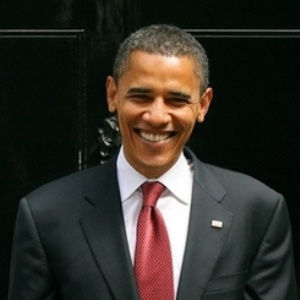Barack Obama’s Foreign Tour

Last week, the U.S. presidential candidate Barack Obama made a 10-day tour which took him to the Middle East and Europe. He visited Afghanistan, Iraq, Israel and the West Bank, Germany, France and the United Kingdom.
Obama who is considered to have less foreign policy experience than his rival John McCain, made these visits in order to enhance his image as a statesman capable of dealing with intricate international issues. He also wanted to show that he could be a competent commander in chief of the U.S. Armed Forces particularly at a time when there are tens of thousands of American troops stationed in Iraq and Afghanistan and it is not clear when those troops can leave these troubled areas and return home. Obama made use of this trip to keep his distance from the unilateral policies of the Bush administration. Instead, he emphasized on the importance of partnership with U.S. friends and allies.
During these visits, Obama touched upon different issues important to American voters. In Afghanistan where he had not visited before, Obama called for a two-brigade increase in American forces strength. Being aware of the tenacity of Taliban and Al-Qaeda in Afghanistan, Obama has been advocating the reduction of U.S. troops in Iraq and focusing on fighting insurgents in Afghanistan and Pakistan.
In Iraq, he met the Iraqi leaders and the U.S. military commander in Iraq. After the meetings, an Iraqi spokesman said that if the security situation allowed, the government hoped the U.S. troops could leave by the end of 2010. Although, this target date is eight months later than that of Obama, the Iraqi government’s stance seemed to strengthen Obama’s position on Iraq.
Obama’s meetings with Israeli and Palestinian leaders did not include any surprise. While repeating his pro-Israeli positions, Obama reiterated that he would not put pressure on Israel to accept peace with Palestinians. However, he promised the head of the Palestinian Authority that he would not waste a minute to further the peace process.
Obama’s visits to Germany, France and Britain focused mainly on trans-Atlantic relations which, according to him, should be based on partnership and burden sharing to protect "our common security and advance our common humanity". In Europe, Obama also discussed with his interlocutors regional issues including Iran.
On Iran, Obama was more direct than before when he talked about the Iranian nuclear program. He said in Israel that "the world must prevent Iran from obtaining a nuclear weapon". And in Berlin and in front of 200,000 people he emphasized that the U.S. and Europe must send a direct message to Iran that it must discard its nuclear aspiration.
In his news conference with Nicolas Sarkozy, Obama called on Iran to accept the proposals presented to Iran by EU 3 plus 3 and not to wait until the next U.S. President comes to office because "the pressure is only going to build". In supporting the Bush’s decision to send William Burns to 5+1 meeting in Geneva, he said that Iran should take that gesture seriously. Like President Bush, Obama presented Iran with two choices: changing its behavior and be fully integrated into the international community or continuing with the nuclear program and be faced with increasing pressure and sanctions by the international community.
Obama’s 10-day tour seemed to increase his stature outside the country despite the fact that he might have lost some supports at home for spending this amount of time overseas when most Americans are pre-occupied with domestic issues including the current economic recession.
Obama sounded like a sitting U.S. president when he was speaking about different subjects particularly about Iran. His remarks presented a clear indication that the world should not expect a real change to happen in the U.S. foreign policy, a change he has been mentioning throughout his campaign. If elected, Obama would emphasize more on multilateralism, however, the general trend of the U.S. foreign policy, particularly its Middle East policy, will not change much.

